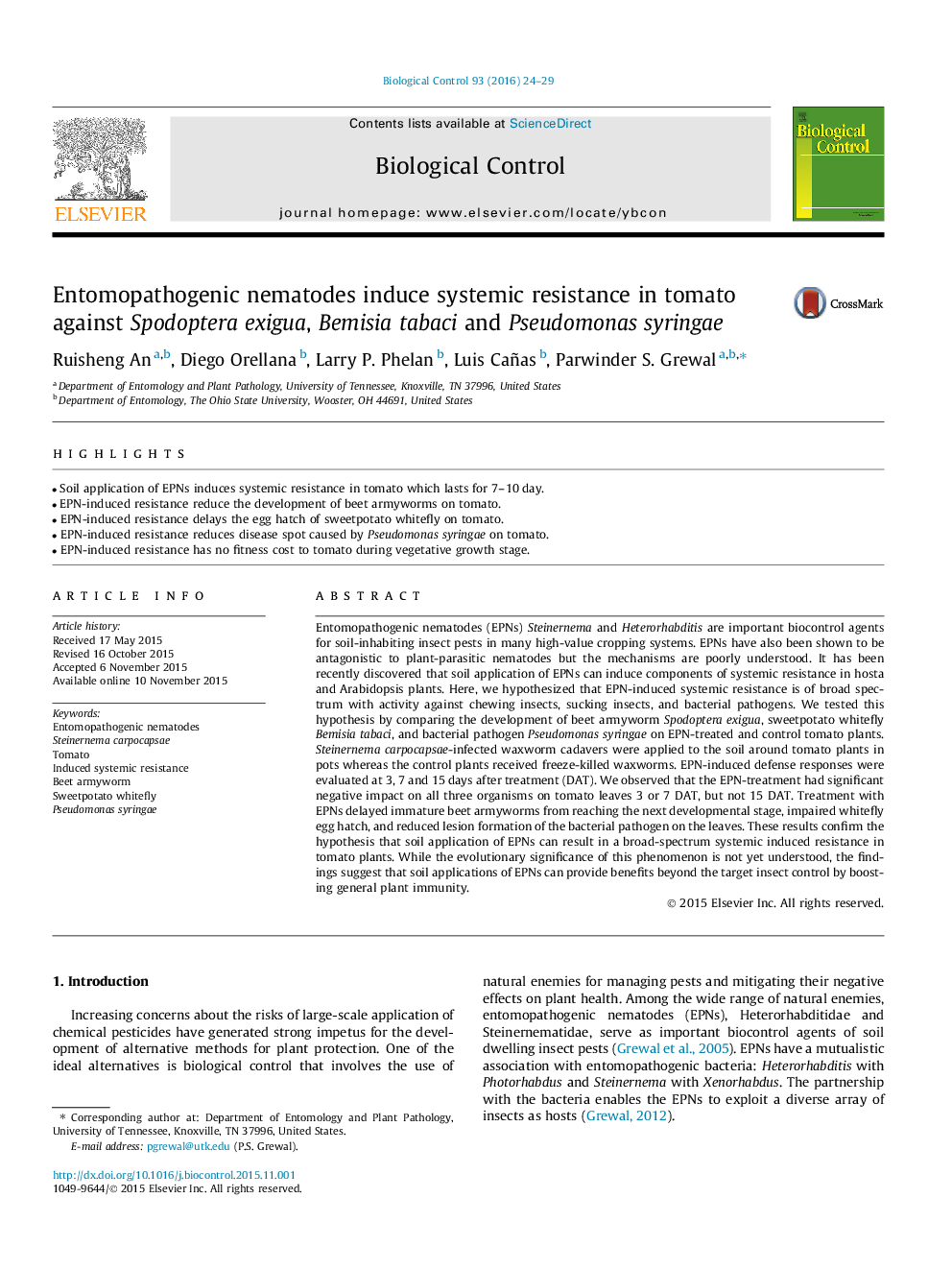| کد مقاله | کد نشریه | سال انتشار | مقاله انگلیسی | نسخه تمام متن |
|---|---|---|---|---|
| 4503650 | 1624241 | 2016 | 6 صفحه PDF | دانلود رایگان |
• Soil application of EPNs induces systemic resistance in tomato which lasts for 7–10 day.
• EPN-induced resistance reduce the development of beet armyworms on tomato.
• EPN-induced resistance delays the egg hatch of sweetpotato whitefly on tomato.
• EPN-induced resistance reduces disease spot caused by Pseudomonas syringae on tomato.
• EPN-induced resistance has no fitness cost to tomato during vegetative growth stage.
Entomopathogenic nematodes (EPNs) Steinernema and Heterorhabditis are important biocontrol agents for soil-inhabiting insect pests in many high-value cropping systems. EPNs have also been shown to be antagonistic to plant-parasitic nematodes but the mechanisms are poorly understood. It has been recently discovered that soil application of EPNs can induce components of systemic resistance in hosta and Arabidopsis plants. Here, we hypothesized that EPN-induced systemic resistance is of broad spectrum with activity against chewing insects, sucking insects, and bacterial pathogens. We tested this hypothesis by comparing the development of beet armyworm Spodoptera exigua, sweetpotato whitefly Bemisia tabaci, and bacterial pathogen Pseudomonas syringae on EPN-treated and control tomato plants. Steinernema carpocapsae-infected waxworm cadavers were applied to the soil around tomato plants in pots whereas the control plants received freeze-killed waxworms. EPN-induced defense responses were evaluated at 3, 7 and 15 days after treatment (DAT). We observed that the EPN-treatment had significant negative impact on all three organisms on tomato leaves 3 or 7 DAT, but not 15 DAT. Treatment with EPNs delayed immature beet armyworms from reaching the next developmental stage, impaired whitefly egg hatch, and reduced lesion formation of the bacterial pathogen on the leaves. These results confirm the hypothesis that soil application of EPNs can result in a broad-spectrum systemic induced resistance in tomato plants. While the evolutionary significance of this phenomenon is not yet understood, the findings suggest that soil applications of EPNs can provide benefits beyond the target insect control by boosting general plant immunity.
Journal: Biological Control - Volume 93, February 2016, Pages 24–29
